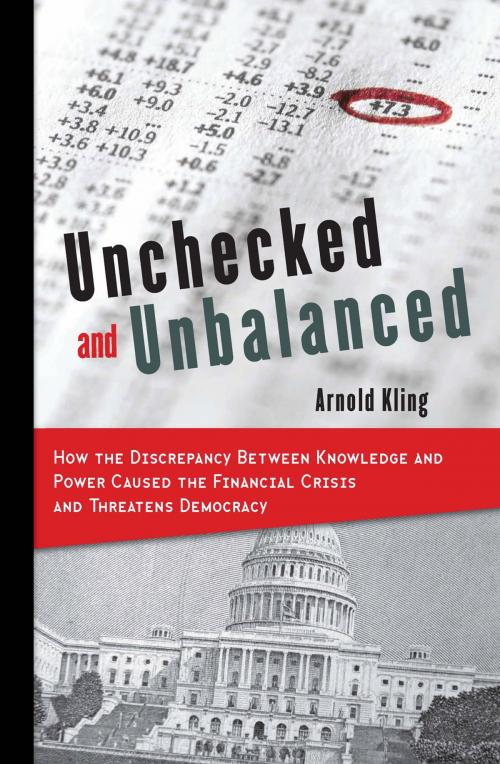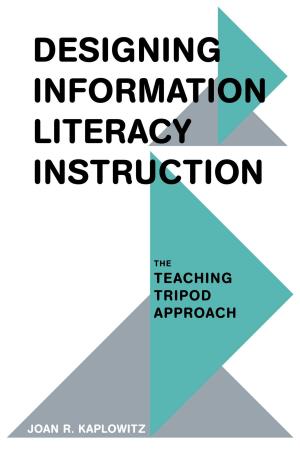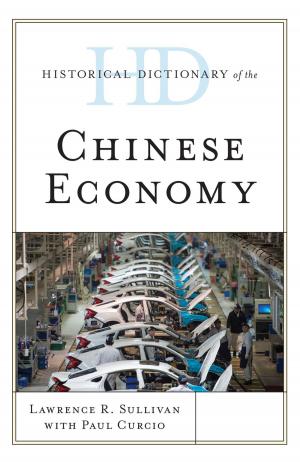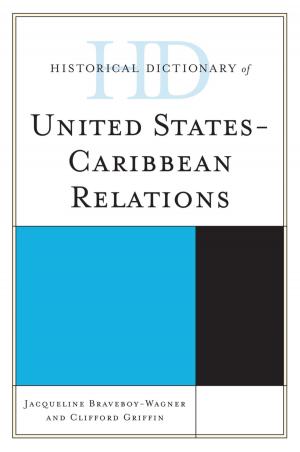Unchecked and Unbalanced
How the Discrepancy Between Knowledge and Power Caused the Financial Crisis and Threatens Democracy
Nonfiction, Social & Cultural Studies, Political Science, Politics, Economic Conditions, Government, Democracy, Economic Policy| Author: | Arnold Kling | ISBN: | 9781442201262 |
| Publisher: | Rowman & Littlefield Publishers | Publication: | November 16, 2009 |
| Imprint: | Rowman & Littlefield Publishers | Language: | English |
| Author: | Arnold Kling |
| ISBN: | 9781442201262 |
| Publisher: | Rowman & Littlefield Publishers |
| Publication: | November 16, 2009 |
| Imprint: | Rowman & Littlefield Publishers |
| Language: | English |
In Unchecked and Unbalanced, Arnold Kling provides a blueprint for those who are skeptical of political and financial elitism. At the heart of Kling's argument is the growing discrepancy between two phenomena: knowledge is becoming more diffuse, while political power is becoming more concentrated. Kling sees this knowledge/power discrepancy at the heart of the financial crisis of 2008. Financial industry executives and regulatory officials lacked the ability to fathom the complexity of the system that had emerged. And, in response, Treasury Secretary Henry Paulson and Federal Reserve Board Chairman Ben Bernanke, said that they required still more power, including $700 billion to purchase 'toxic assets' from banks. Kling warns that increased concentration of power is a problem, not a panacea, for our modern world and suggests reforms designed to curb the growth of government and allow citizens greater control over the allocation of public goods. Published in cooperation with the Hoover Institution
In Unchecked and Unbalanced, Arnold Kling provides a blueprint for those who are skeptical of political and financial elitism. At the heart of Kling's argument is the growing discrepancy between two phenomena: knowledge is becoming more diffuse, while political power is becoming more concentrated. Kling sees this knowledge/power discrepancy at the heart of the financial crisis of 2008. Financial industry executives and regulatory officials lacked the ability to fathom the complexity of the system that had emerged. And, in response, Treasury Secretary Henry Paulson and Federal Reserve Board Chairman Ben Bernanke, said that they required still more power, including $700 billion to purchase 'toxic assets' from banks. Kling warns that increased concentration of power is a problem, not a panacea, for our modern world and suggests reforms designed to curb the growth of government and allow citizens greater control over the allocation of public goods. Published in cooperation with the Hoover Institution















